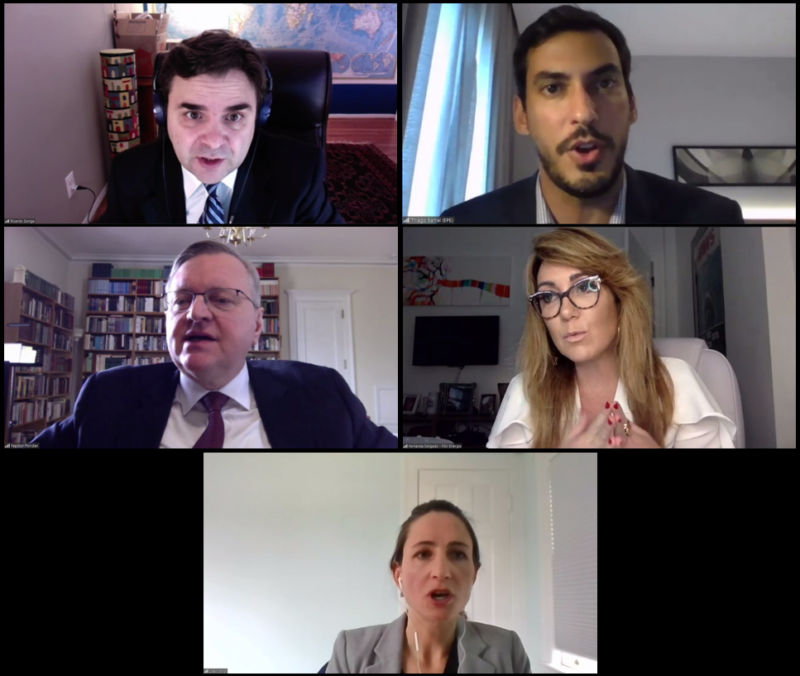Rising Brazil: The Choices Of A New Global Power
What should we expect from a newly powerful Brazil? Does the country have the capacity and leadership to be a central actor in addressing critical global and regional problems?
Energy and climate change are important aspects of the US-Brazil relationship and will only become more prominent under the Biden administration. Brazil and the US are important diplomatic and trade partners in the hemisphere, and both countries have the potential to make major contributions to combating climate change and developing more sustainable and reliable energy systems.
In collaboration with FGV Energia, on February 26, the Inter-American Dialogue held a private virtual roundtable on US-Brazil energy and climate cooperation featuring Ricardo Zúñiga, interim director of the Brazil Institute at the Wilson Center and former senior director for Western Hemisphere affairs at the US National Security Council, and Thiago Barral, chief executive officer of the Brazilian government’s Energy Research Office (EPE). Fernanda Delgado, professor and researcher at FGV Energia, gave framing remarks, and the discussion was moderated by Lisa Viscidi, director of the Energy, Climate Change & Extractives Industries Program at the Inter-American Dialogue. Nestor Forster Jr., Brazil’s ambassador to the United States, gave opening remarks.
The objective of the meeting was to provide an understanding of Brazilian energy policy, the outlook for US-Brazil relations, including on issues such as trade and environmental policy, and how the shifting relationship may affect investment in the oil and power sectors. The discussion also sought to identify specific areas and opportunities for collaboration on energy and climate change where both countries’ interests are aligned. Participants included US and Brazilian government officials, representatives of energy companies from the US, Brazil, and Europe, and other experts.
What should we expect from a newly powerful Brazil? Does the country have the capacity and leadership to be a central actor in addressing critical global and regional problems?
2009 has not been a good year for U.S.-Latin America relations. Despite their warm welcome at the April Summit, Latin America’s governments made life more difficult than anticipated for President Obama.
President Lula da Silva triumphantly announced that he and his Turkish counterpart had persuaded Iran to shift a major part of its uranium enrichment program overseas—an objective that had previously eluded the US and other world powers. Washington, however, was not applauding.
